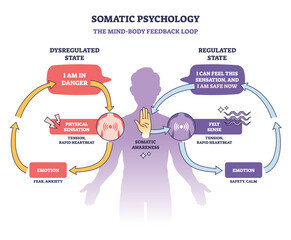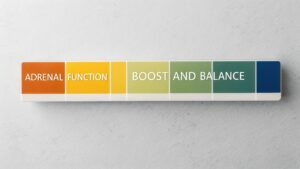Our brains, shaped by evolution to be vigilant against threats, often default to negative thought patterns, a survival mechanism that once served humans (Cherry, 2022). For example, if someone heard a strange noise outside their shelter and thought it may be an animal trying to attack them, they would react to be able to protect against the threat. Nowadays, however, we don’t need to be hyper-alert in the same way. Studies report an increase in anxiety and depression, and negative effects on our relationships and self-perception when we regularly engage in negative and fear-based thought patterns. If you’re driving and someone honks their horn, you may feel frustrated and on edge and find yourself shift towards a more negative mindset. Because this way of thinking is an automatic response, it is important to learn to work consciously and intentionally to rewire this negative thought pattern and create new pathways for our thoughts.
One way of rewiring your brain from automatically falling into negative thought patterns is to practice self-compassion. According to research by Dr. Kristin Neff, a practice of self-compassion can contribute to higher levels of happiness, optimism, feeling connected with others, and lower levels of anxiety, depression, and fear of failure (Neff, 2009). Self-compassion can be defined as practicing kindness towards oneself as one would treat a dear friend or relative they may be trying to comfort. While it may seem like most of us have an idea of what self-compassion means, some may find it difficult to apply this concept in their daily lives.
How can you practice self-compassion?
Building Awareness
The main thing to remember when you are looking to incorporate self-compassion in your life is to create an awareness around the negative self-related thoughts that pop up in your mind. Begin noticing when these thoughts tend to come up for you. Are you receiving grades at school that fall below your or your parent’s expectations? Are you not meeting your or your boss’s standards at work? Could they come up in times of frustration? During arguments in your relationships? Or maybe you notice they come up when you feel like you’ve made a mistake or failed at something. When awareness grows and you start to notice your negative thoughts, and maybe even begin observing how they impact your mood or outlook on life, you can then start to work on changing those thoughts.
Changing your Negative Thoughts
Once you increase your ability to observe and detect critical self-talk, you can shift that negativity to something more encouraging and kinder. For example, you got a grade you weren’t expecting on an exam, and you think to yourself “I’m really dumb, how could I have earned a D on this test?” Practicing self-compassion would include acknowledging this is harsh way to talk to yourself. An alternative would be to reframe the unhelpful thought into something more kind like, “I didn’t do well on this test, and I feel disappointed, but that doesn’t mean I’m not smart. I may need to ask for help or study differently.”
Another example could be that you receive critical feedback on a project you were working on at work and you think to yourself “I’m a failure, now my boss is going to think I’m incompetent.” Practicing self-compassion would include noticing the negative self-talk and reframing it to something more beneficial, rational or realistic like, “I got a lot of feedback on this project, while I feel upset, this means I can improve what I lack knowledge in and grow from this opportunity.”
A key to self-compassion is learning to acknowledge and validate the emotion behind the experience that brought upon the negative self-talk, but not allowing the emotion to dictate your mood.
Activities that Foster Self-Compassion
- Write a letter to your younger self, nurturing your inner child (the parts of you that are vulnerable and/or hurting)
- Write a letter to yourself as if you were writing to a friend in need
- Write out affirmations and put them in a visible spot (i.e., your mirror, the back of your phone, on your laptop, etc.) and read these on a regular basis
- Saying affirmations or kind words to yourself out loud in front of a mirror (i.e., I am loved. I am worthy. I am not my mistakes. I am learning every day. I am not my thoughts. I love myself, etc.)
- Plan a self-care day, or hour if you’re a busy person, and come up with a couple ways to nourish yourself (i.e., take a bath or a long shower, read a book you’ve been meaning to read, go on a walk, journal, play a video game, listen to music, work on an art or other creative project, do a movement practice like yoga, or tai chi, practice sitting with yourself with a meditation or a sound bowl experience, etc.)
- Start a self-compassion journal that you write in at least once a week to check in with yourself, practice gratitude, write out affirmations, and note any moments of self-criticism or judgement that you can work through using the practice described above
You may feel silly or even childish when you start practicing self-compassion because it may feel unnatural as you may not be used to speaking to yourself with care, which goes back to the original idea that our brains are wired towards being more negative, rather than positive. With that being said, of course, it may feel impractical to be more positive at the beginning, and it may even feel fake or inauthentic. This is normal and to be expected when reframing negative and stubborn thinking patterns. I encourage building tolerance for the discomfort you may feel by trying different ways of practicing self-compassion and creating a consistent practice of being kinder to yourself to take advantage of and integrate with the benefits of this practice.
Agnes Krzeminska, LCPC, NCC, CCMHC
References:
Neff K.D. Leary M.R., Hoyle R.H. Handbook of individual differences in social behavior. New York: Guilford Press; 2009. Self-Compassion; pp. 561–573. https://scholar.google.com/scholar_lookup?title=Handbook+of+individual+differences+in+social+behavior&author=K.D.+Neff&author=M.R.+Leary&author=R.H.+Hoyle&publication_year=2009&
Cherry, K. (2022, June 14). What is negative bias? Definition, causes, and how to overcome it. Verywell Mind. https://www.verywellmind.com/negative-bias-4589618#toc-how-to-overcome-negative-bias




